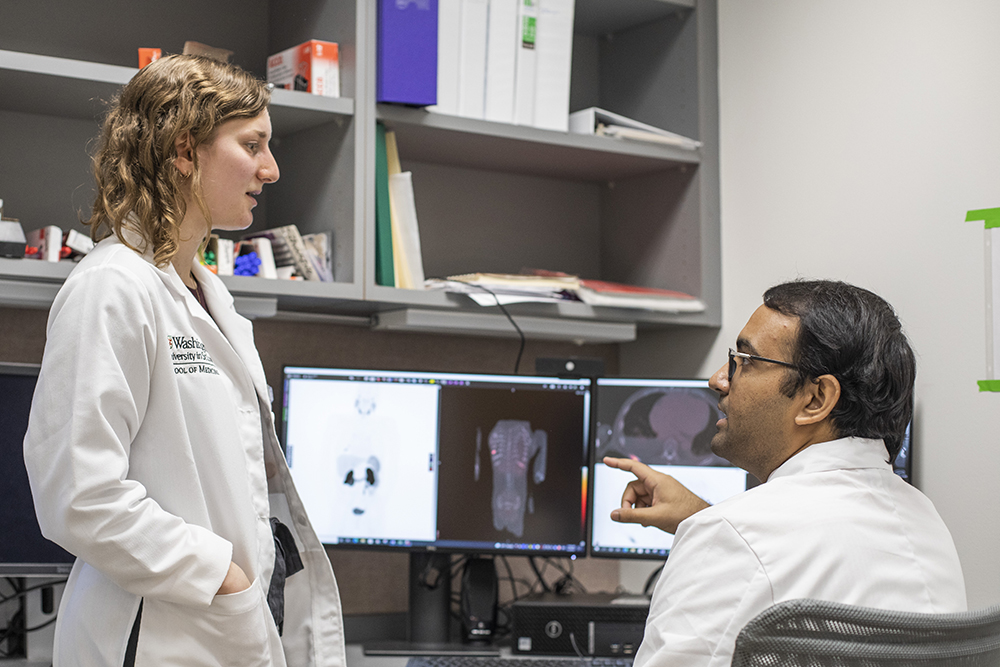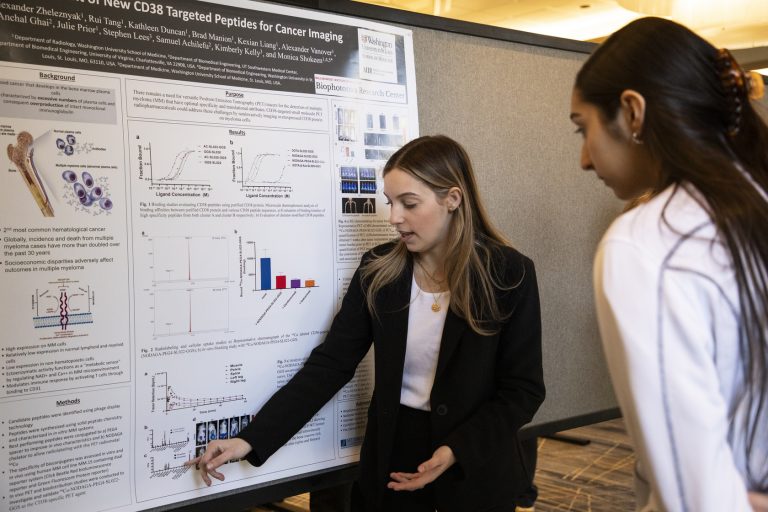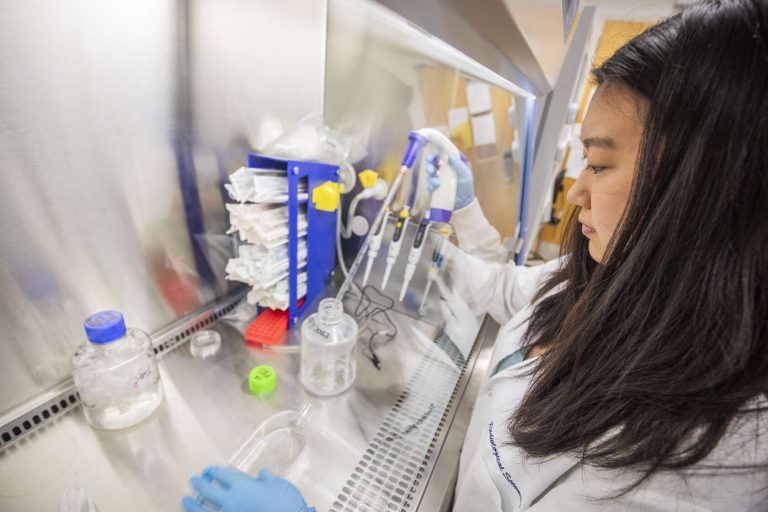Wahl Lab
Projects
Evaluation of Next-Generation CD20 Antibodies as PET Imaging Agents for CD20-Expressing Diseases
Goal
To prepare, characterize and utilize 89Z-labeled-CD20 antibodies as PET imaging agents.
177Lu-Labeled Anti-CD20 Agent for Targeted Lymphoma Therapy
Goal
To develop a novel 177Lu-based targeted radiotherapeutic for the treatment of patients with non-Hodgkins lymphoma or other CD20-expressing diseases.
225Ac-Labeled Anti-CD20 Agent for Targeted Lymphoma Therapy
Goal
To develop a novel 225Ac-based targeted radiotherapeutic for the treatment of patients with non-Hodgkins lymphoma or other CD20-expressing diseases.
89Z-Labeled Anti PDL1 Antibodies to Assess Immunotherapy
Goal
To develop novel 89Z-labeled anti PDL1 antibodies to assess immunotherapy response in vivo in bladder cancer.
Imaging Brown Adipose Biology in Man
Goal
To systematically image brown adipose tissue in man using PET and MRI techniques and to link BAT imaging to BAT biology including as a risk/protective factor for diabetes and risk states for diabetes.

Our People
The lab, led by Richard L. Wahl, MD, features a team of researchers focused on developing and improving targeted imaging and therapy for cancer using radionuclide-based approaches.



